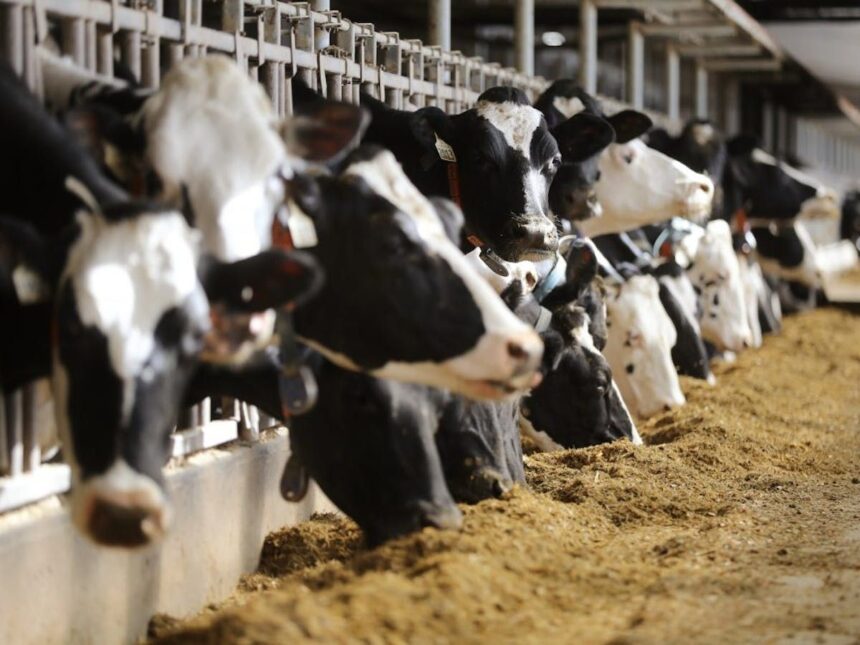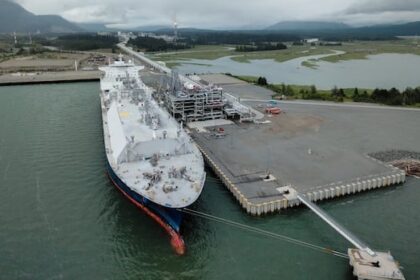Cows eat at the Skyline Dairy farm near Grunthal, Man. Photo by PostmediaArticle contentIn recent days, nearly everyone has weighed in on supply management – especially after U.S. President Donald Trump reiterated his longstanding opposition to the policy.THIS CONTENT IS RESERVED FOR SUBSCRIBERS ONLY.Subscribe now to access this story and more:Unlimited access to the website and appExclusive access to premium content, newsletters and podcastsFull access to the e-Edition app, an electronic replica of the print edition that you can share, download and comment onEnjoy insights and behind-the-scenes analysis from our award-winning journalistsSupport local journalists and the next generation of journalistsSUBSCRIBE TO UNLOCK MORE ARTICLES.Subscribe or sign in to your account to continue your reading experience.Unlimited access to the website and appExclusive access to premium content, newsletters and podcastsFull access to the e-Edition app, an electronic replica of the print edition that you can share, download and comment onEnjoy insights and behind-the-scenes analysis from our award-winning journalistsSupport local journalists and the next generation of journalistsRegister to unlock more articles.Create an account or sign in to continue your reading experience.Access additional stories every monthShare your thoughts and join the conversation in our commenting communityGet email updates from your favourite authorsSign In or Create an AccountorArticle contentIn a letter to Prime Minister Mark Carney, Trump threatened to impose new tariffs of up to 35 per cent by Aug. 1, reigniting old debates.Article contentArticle contentIn response, the media has scrambled to feature a range of voices, many of whom lack any real understanding of the policy’s complexities. Some of the most misleading statements have come from high-profile commentators and political figures who have never seriously studied the system.Article contentArticle contentSupply management in Canada governs the production of dairy, poultry and eggs. It operates through production quotas, provincially allocated, and is supported by high tariffs on imports to maintain a delicate balance between domestic supply and demand.Article contentOf all three sectors, dairy is by far the most protected, accounting for about 80 per cent of the total quota system. It is also the least competitive and most vulnerable.Article contentOne of the most common – and erroneous – claims circulating in recent interviews is that dismantling supply management would automatically lower retail dairy prices. That’s simply false. In countries where similar systems were abolished, prices often increased.Article contentLike carbon pricing, retail food prices are shaped by numerous factors, including labour, logistics and input costs – not just farmgate prices. While dairy products in Canada are relatively expensive, they are also remarkably stable in price, largely due to supply management. However, industrial milk and butterfat prices in Canada are among the highest globally, and this should be addressed.Article contentArticle contentAnother misconception is that Trump isn’t really targeting Canada’s dairy sector. He absolutely is – but not because the U.S. dairy industry is desperate to access the Canadian market. In truth, our market is too small to move the needle for most U.S. producers. Rather, Trump is using the issue as a wedge – leveraging a politically sensitive topic to extract concessions elsewhere. He understands, better than many Canadians, how politically explosive this issue is for our 9,500 quota-holding dairy farmers, many of whom are among the most well-resourced in the country.Article contentArticle contentDairy Farmers of Canada spend an estimated $5 to $8 per Canadian annually on advertising – one of the highest marketing spends in the country. Their presence is ubiquitous, from online platforms to Toronto Maple Leafs hockey jerseys.Article contentUnsurprisingly, this shapes how the media covers the issue. Over the years, media outlets have frequently featured voices sympathetic to supply management, often excluding more critical, informed or independent perspectives. That trend has only worsened recently.
SYLVAIN CHARLEBOIS: Everyones suddenly a supply management expert but few understand it











